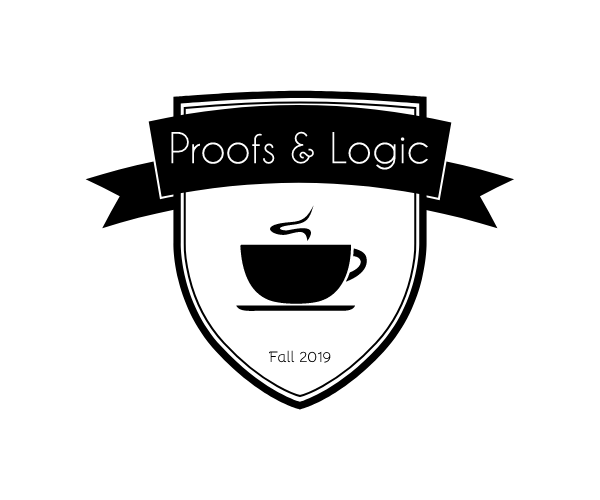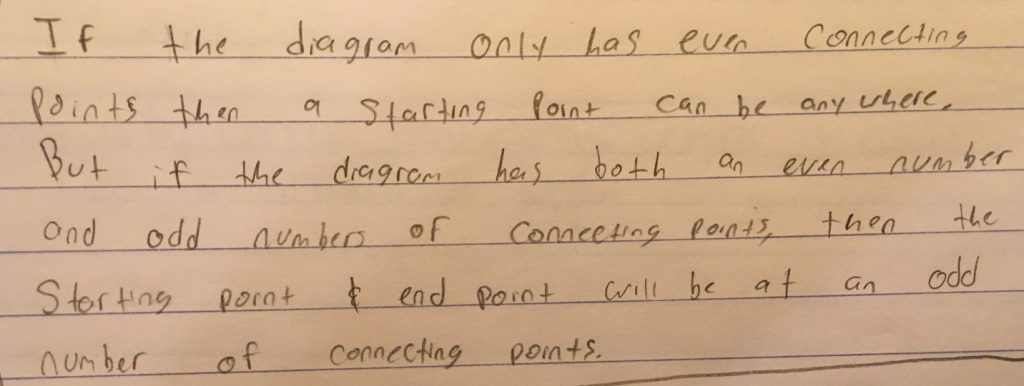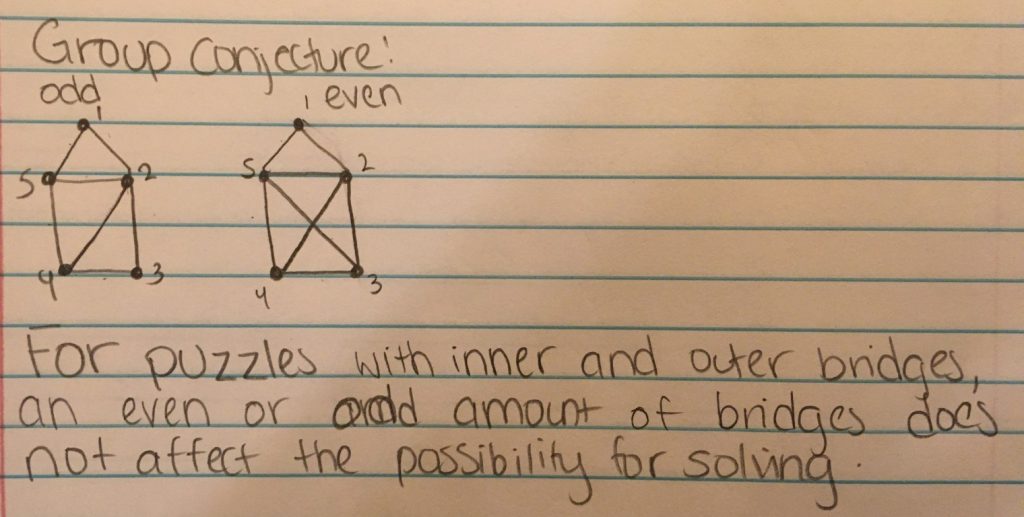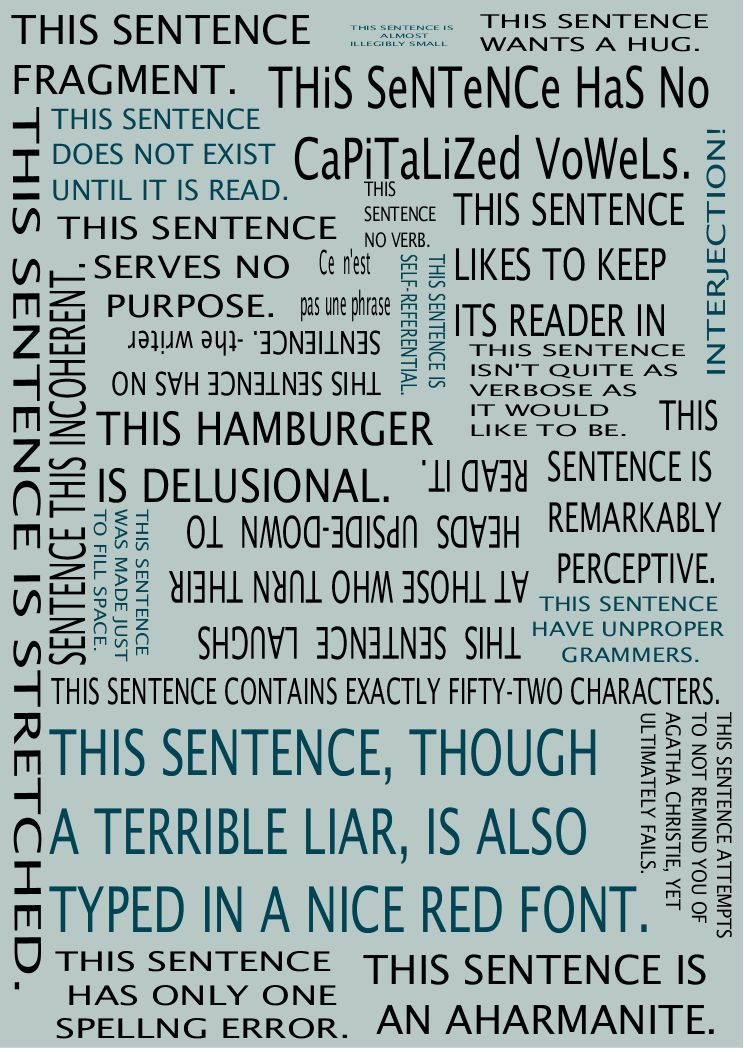Your assignment for the coming week+ is to try to prove the conjecture that your group created in class on Thursday, 10/24. You may need to refine/expand your conjecture first (let’s discuss this in class). You must spend at least 90 minutes working on this. Trying to prove something can consist of many different activities, such as the following (you do NOT have to do all of these things – you can choose how to spend your time – they are provided for inspiration only).
- coming up with ideas, and testing them out (for example, by creating puzzles and trying to solve them)
- trying to understand what the conjecture says
- trying to solve puzzles that other people created
- trying to create puzzles (and solve them yourself)
- communicating with other members of your group (talking, emailing, etc.)
- trying to write down a proof
- other stuff…
As you work, keep track of what you are doing, thinking, and feeling (this is metacognition – an idea that discussed way back in OpenLab #2). What did you do during the time you spent? Did you create any puzzles? Did you solve puzzles? Did you change your mind about whether the conjecture is true or false? Did you have any new ideas about how to prove the conjecture? Did you have any ideas that you gave up on? How did you feel as you worked – were you frustrated/confused/happy/depressed? Why? Did your mood change along the way?
Assignment (Due Thursday, 11/7): Submit a journal of your efforts in the comments below. Your response should be at least 300 words. Describe what you did during the 90 minutes you worked, and express in some way what you were thinking and feeling during the process. Your response can include puzzles (use sketchtoy.com) or other work you did along the way.
Extra Credit. Respond to a fellow student’s comment. Did you do similar things? Different things? Do you have any suggestions for them? Be kind.
GROUP CONJECTURES (created in class 10/24):
Group 1: Song Yu, Randy, Aurkaw
Group 2: Youshmanie, Dylan







Recent Comments